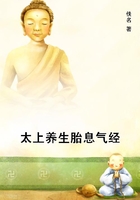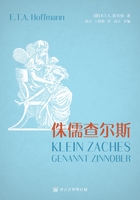When I say of a man who commits a theft that, by the law of causality, this deed is a necessary result of the determining causes in preceding time, then it was impossible that it could not have happened; how then can the judgement, according to the moral law, make any change, and suppose that it could have been omitted, because the law says that it ought to have been omitted; that is, how can a man be called quite free at the same moment, and with respect to the same action in which he is subject to an inevitable physical necessity?
Some try to evade this by saying that the causes that determine his causality are of such a kind as to agree with a comparative notion of freedom.According to this, that is sometimes called a free effect, the determining physical cause of which lies within the acting thing itself, e.g., that which a projectile performs when it is in free motion, in which case we use the word freedom, because while it is in flight it is not urged by anything external; or as we call the motion of a clock a free motion, because it moves its hands itself, which therefore do not require to be pushed by external force; so although the actions of man are necessarily determined by causes which precede in time, we yet call them free, because these causes are ideas produced by our own faculties, whereby desires are evoked on occasion of circumstances, and hence actions are wrought according to our own pleasure.This is a wretched subterfuge with which some persons still let themselves be put off, and so think they have solved, with a petty word- jugglery, that difficult problem, at the solution of which centuries have laboured in vain, and which can therefore scarcely be found so completely on the surface.In fact, in the question about the freedom which must be the foundation of all moral laws and the consequent responsibility, it does not matter whether the principles which necessarily determine causality by a physical law reside within the subject or without him, or in the former case whether these principles are instinctive or are conceived by reason, if, as is admitted by these men themselves, these determining ideas have the ground of their existence in time and in the antecedent state, and this again in an antecedent, etc.Then it matters not that these are internal; it matters not that they have a psychological and not a mechanical causality, that is, produce actions by means of ideas and not by bodily movements; they are still determining principles of the causality of a being whose existence is determinable in time, and therefore under the necessitation of conditions of past time, which therefore, when the subject has to act, are no longer in his power.This may imply psychological freedom (if we choose to apply this term to a merely internal chain of ideas in the mind), but it involves physical necessity and, therefore, leaves no room for transcendental freedom, which must be conceived as independence on everything empirical, and, consequently, on nature generally, whether it is an object of the internal sense considered in time only, or of the external in time and space.Without this freedom (in the latter and true sense), which alone is practical a priori, no moral law and no moral imputation are possible.just for this reason the necessity of events in time, according to the physical law of causality, may be called the mechanism of nature, although we do not mean by this that things which are subject to it must be really material machines.We look here only to the necessity of the connection of events in a time-series as it is developed according to the physical law, whether the subject in which this development takes place is called automaton materiale when the mechanical being is moved by matter, or with Leibnitz spirituale when it is impelled by ideas; and if the freedom of our will were no other than the latter (say the psychological and comparative, not also transcendental, that is, absolute), then it would at bottom be nothing better than the freedom of a turnspit, which, when once it is wound up, accomplishes its motions of itself.















